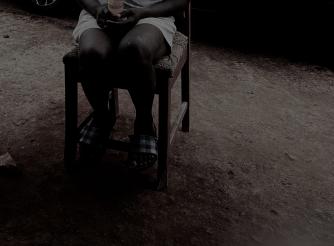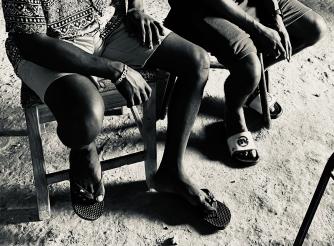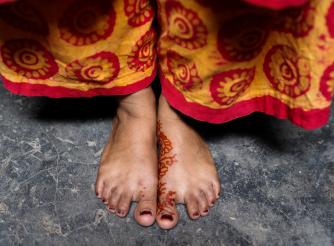What's #HerStory?
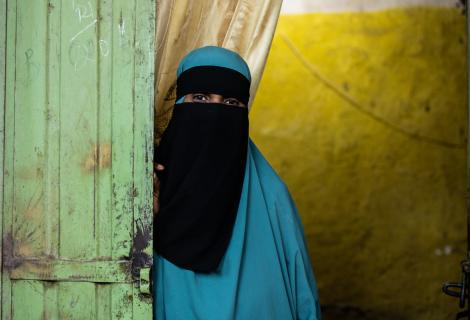
Mehuba shares her experience of modern slavery
From an early age, Mehuba, from Ethiopia, was forced to work by her father. Today, she is a successful business owner and creates jobs for other women. Mehuba's story clearly illustrates the drivers of illegal migration, which often force vulnerable women seeking decent employment as domestic workers into situations of modern slavery.
I started working at the age of six. Growing up, we had vast farmland; however, my father had an illness and couldn't work on the land, and my parents were not on good terms. As a result of poverty, my father got me a job as a domestic worker.
My job involved cattle herding, and I was paid 10 Birr a year [less than £1], which my father collected. I worked with that family for two years.
During my childhood, my father forced me to work for many families as a domestic worker, which included farming activities. In one household, I was tasked with minding the goats. There were several goats, and it was hard for me to watch them all. I was physically abused and beaten if I lost a goat or left one behind. On several occasions when the workload was unbearable, I ran away. There were times when I travelled a far distance to fetch water alone with a pot. I worked barefoot, and on one occasion, I stepped on a sharp thorn that dug deep into my toe.
Communication with my family was challenging, and I could not contact my parents, and when they sent letters, my employers withheld them. When I worked on the first farm at six years old, I saw my mother and siblings walk by while I was herding the cattle. I tried to call her, but she could not hear me, so I ran towards her and fell into a pit.
I suffered a great deal. In every job, I was forced to work beyond my capabilities. It was too much for my age. However, I did not want to slack, so I did everything I was told. There was never much food available; I was given semi-skimmed milk in a container the size of an egg, and in the evening, after working long hours, my employers offered me boiled haricot beans.
I have desired education since childhood but was never given the opportunity. My mother prioritised my marriage instead of education and insisted that I get married. I refused, started a day job at 13, and enrolled myself in school. My journey at school was turbulent. I dropped out in 6th grade to work full time again, then I went back after a few months and dropped out again during the first term of 8th grade due to the increasing workload from my employer. I supported myself with no support from my family.
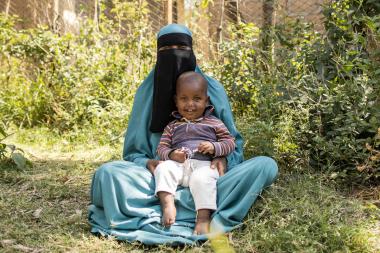
After many years of child labour, I decided to go abroad for better opportunities. The cost to Dubai was 8000 Bir at the time, I could not afford this, so I travelled by sea via Djibouti. In Dubai, I worked as a domestic worker caring for an elderly sick patient and his grandchildren for six months with no pay, so I fled to Saudi Arabia. My employer forced me to sleep in the bathroom on the ceramic tiled floor there for a year. As a result, I suffered from paralysis in my legs and arms. Due to my illness, I could not work for a year, and once I got better, my arms were still so weak that I could not hold a plate, so I decided to return to Ethiopia.
In Ethiopia, through the Combatting Modern Slavery project ActionAid and partners provided Mehuba with an opportunity to learn the skills to earn a sustainable income and support her young family. Mehuba was awarded a seed grant of 10,000 Birr (£147). As she looks towards a brighter future, she says:
Despite the poverty level, children deserve to grow up in their parents' love. They have a right to education. If they are educated, they will have more opportunities. Trafficking, illegal migration and forced domestic work is awful. It's terrible! It takes away a chunk of your life and robs you of your youth. I don't want anyone to experience what I went through.
I am now a single parent to two boys aged three and one. My vision is for my children to have an education and not experience what I went through as a child. I worked various jobs to raise my children with good discipline and an opportunity for them to be educated. The ActionAid business training taught me how to save and grow my business. With the financial support, I now sell 'shiro' and 'berbere' to retailers. I have employed and created jobs for other women.
I am grateful for ActionAid's support, and I want this to be an example for my children so that they can also support children, women and those in need.
